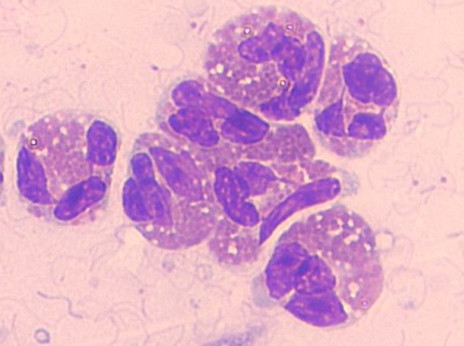Ipertermia e metastatizzazione
 Un lavoro clinico pubblicato sulla rivista internazionale Hepatogastroenterology afferma che l'ipertermia può modulare il potenziale metastatico delle cellule tumorali ed inibire la metastatizzazione.
Un lavoro clinico pubblicato sulla rivista internazionale Hepatogastroenterology afferma che l'ipertermia può modulare il potenziale metastatico delle cellule tumorali ed inibire la metastatizzazione.
Questa esperienza in vitro è stata condotta su cellule di epatocarcinoma studiando la capacità dell'ipertermia oncologica di modulare il fattore EMT (epithelial – mesenchymal transition) che gioca un ruolo essenziale nella metastatizzazione e nella crescita tumorale.
Dr. Carlo Pastore
Hepatogastroenterology. 2012 Jun 18;59(119). doi: 10.5754/hge12404. [Epub ahead of print]
Xu XM, Yuan GJ, Li QW, Shan SL, Jiang S.
Abstract
Background/Aims: EMT plays an essential role in tumor progression and metastasis. Hyperthermia is a potent approach for cancers with low side effects. However, the effect of hyperthermia on EMT of cancer cells is unknown. Methodology: Cells were treated with TGF-?1 and epidermal growth factor for 96h and then exposed to hyperthermia at 43°C for 0.5h. Cell morphology was observed. Expressions of E-cadherin and vimentin were determined by Western blot. The protein and mRNA expressions of Snail were detected with Western blot and RT-PCR. Cell migratory capacity was evaluated. Results: TGF-?1 induced EMT in HepG2 cells, which was evidenced by morphological, molecular and functional changes, including the formation of spindle shape and the loss of cell contact. The expression of E-cadherin was decreased but the expression of vimentin increased; also, the migratory capability was increased by 2.1±0.19-fold as compared with untreated cells. However, those effects were inhibited by the treatment of hyperthermia. Furthermore, the protein and mRNA expressions of Snail induced by TGF-?1 were also significantly inhibited by hyperthermia treatment. Conclusions: Hyperthermia can inhibit TGF-?1-induced EMT in HepG2 cells, suggesting that hyperthermia may alter the properties of metastatic potential in cancer cells and inhibit tumor metastasis.
 Il concetto di sbloccare l'immunità che spesso risulta frenata nel paziente oncologico sta sempre più venendo alla ribalta.
Il concetto di sbloccare l'immunità che spesso risulta frenata nel paziente oncologico sta sempre più venendo alla ribalta.
 RSS
RSS 




